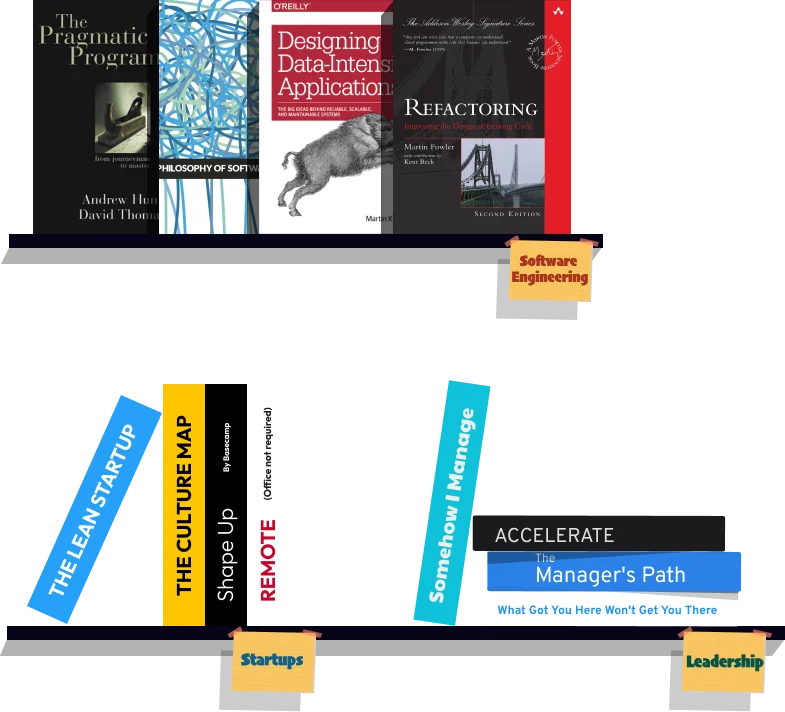The Architects of Intelligent Systems Machine Learning Engineers
A Machine Learning (ML) Engineer is a specialized software engineer who designs, builds, and productionizes machine learning models to solve complex business problems. They work at the intersection of software engineering and data science, possessing the skills to not only train a model but also to deploy and maintain it as a scalable, reliable service.

Hiring an ML engineer is an investment in turning data from a raw asset into a predictive powerhouse. They are responsible for the entire lifecycle of an ML model, from data pipelines and feature engineering to deployment and monitoring, creating intelligent systems that can learn from data and drive real business value.
Expertise in Python and The Data Science Stack
The vast majority of machine learning is done in Python, making expert-level proficiency in the language and its data science ecosystem a non-negotiable requirement. A candidate must have a deep, practical understanding of core libraries, including NumPy for numerical computations, Pandas for data manipulation, and Matplotlib or Seaborn for data visualization.
They must be able to use these tools to efficiently explore datasets, clean and preprocess data, and perform feature engineering—the critical process of creating the right input signals for a model. A typical workflow might involve using Pandas to analyze a dataset with df.describe() and then cleaning it before model training.
Mastery of ML Frameworks
A proficient ML engineer must have a mastery of the tools and frameworks used to build and train machine learning models. For classical ML tasks, this means deep expertise with Scikit-learn, including a solid understanding of its various algorithms for regression, classification, and clustering, as well as its tools for model evaluation.
For more complex problems, especially those involving unstructured data, expertise in a deep learning framework like Google's TensorFlow or Meta's PyTorch is essential. They should be able to design, build, and train custom neural network architectures using these powerful tools.
Solid Foundation in ML Theory and Algorithms
Beyond simply knowing how to use libraries, a strong ML engineer needs a solid theoretical foundation in machine learning. They must understand the underlying principles of different types of algorithms, including supervised learning (e.g., linear regression, decision trees), unsupervised learning (e.g., k-means clustering), and reinforcement learning.
They should be able to explain core concepts like the bias-variance tradeoff, know how to choose appropriate evaluation metrics (e.g., accuracy vs. F1-score), and understand techniques for model validation, like cross-validation. This theoretical knowledge allows them to choose the right algorithm for a problem and correctly interpret the results.
Data Engineering and Big Data Skills
Machine learning models are fueled by data, and an ML engineer must know how to build the pipelines that supply that fuel. They need strong data engineering skills, including the ability to write efficient SQL queries to extract data from data warehouses and experience with data pipeline tools.
For large-scale applications, familiarity with big data technologies is often a requirement. This includes experience with distributed computing frameworks like Apache Spark, which can process massive datasets that are too large to fit on a single machine. The ability to work with data at scale is a critical differentiator for senior roles.
Model Deployment and MLOps
A machine learning model provides no value until it is deployed into production where it can make predictions on real data. This is where the "engineering" part of the role comes into play. A candidate must be proficient in MLOps (Machine Learning Operations), which is the discipline of deploying and maintaining ML models reliably and efficiently.
This requires a diverse skill set, including the ability to wrap a model in an API using a web framework like Flask or FastAPI, containerize the application with Docker, and deploy it to a cloud environment. Experience with CI/CD pipelines for automating the model training and deployment process is also crucial.
Cloud and Infrastructure Knowledge
The vast majority of modern machine learning happens in the cloud. An ML engineer must have hands-on experience with a major cloud provider, such as AWS, Google Cloud, or Azure. They should be familiar with the specialized ML services offered by these platforms, like Amazon SageMaker or Google's Vertex AI.
Beyond the ML-specific services, they need a solid understanding of the underlying cloud infrastructure required to support their models. This includes knowledge of virtual machines, object storage, and networking. This infrastructure knowledge is essential for building scalable and cost-effective ML systems.
The Mathematical Foundations
While they don't need to be pure mathematicians, a strong ML engineer has a solid understanding of the mathematical concepts that underpin machine learning. This includes a good grasp of linear algebra for understanding data representations, calculus for understanding how models are optimized, and probability and statistics for understanding uncertainty and model evaluation.
This foundational knowledge allows them to read academic papers, understand how new algorithms work at a deep level, and troubleshoot model training issues. It's what enables them to move beyond just applying libraries to truly innovating and solving complex problems.
Communication and Business Acumen
A machine learning engineer's work must ultimately solve a business problem. A great candidate is able to effectively communicate with stakeholders to understand the business requirements and translate them into a well-defined ML problem. They need to be able to explain complex technical concepts to a non-technical audience.
They should have a strong sense of business acumen, allowing them to focus on projects that will deliver real value. An ML engineer who can ask the right questions about the business context is an engineer who will build models that have a tangible impact on the bottom line.
Version Control for Data and Models
Just as with software, a disciplined approach to version control is critical in machine learning. An ML engineer must be an expert with Git for versioning their code. However, they also need to be familiar with the unique challenges of versioning large datasets and trained models.
Experience with tools like DVC (Data Version Control) or Git LFS (Large File Storage) is a strong plus. The ability to create a fully reproducible machine learning experiment, where the code, data, and model are all versioned, is a hallmark of a professional and mature ML workflow.
How Much Does It Cost to Hire a Machine Learning Engineer
The cost to hire a Machine Learning Engineer is among the highest in the technology industry, driven by intense demand for a highly specialized and impactful skill set. The primary factors influencing salary are geographic location, academic background (with PhDs often commanding a premium), and years of practical experience.
Salaries in major tech hubs across North America and Western Europe are particularly high. The following table provides an estimated average annual salary for a mid-level Machine Learning Engineer to illustrate these global differences.
| Country |
Average Annual Salary (USD) |
| United States |
$155,000 |
| Switzerland |
$145,000 |
| United Kingdom |
$105,000 |
| Germany |
$100,000 |
| Canada |
$120,000 |
| Poland |
$75,000 |
| Ukraine |
$70,000 |
| India |
$55,000 |
| Brazil |
$65,000 |
| Singapore |
$95,000 |
When to Hire Dedicated Machine Learning Engineers Versus Freelance Machine Learning Engineers
Hiring a dedicated, full-time Machine Learning Engineer is essential when you are building a core, strategic capability that is central to your business model. This model is ideal for long-term projects that require deep domain knowledge, iterative model improvement, and the creation of a proprietary data asset. A dedicated engineer will own the entire ML lifecycle and ensure its continuous success.
Hiring a freelance Machine Learning Engineer is a more tactical approach, perfect for specific, well-defined projects or for getting an expert second opinion. This is a great choice for building a proof-of-concept to validate an idea, performing a one-time data analysis, or getting specialized expertise in a niche area like computer vision for a short-term engagement. Freelancers offer flexibility and on-demand expertise.
Why Do Companies Hire Machine Learning Engineers
Companies hire Machine Learning Engineers to unlock the predictive power of their data and to automate complex, cognitive tasks. ML engineers build the systems that can make intelligent predictions and decisions, which allows a business to optimize processes, personalize user experiences, and create entirely new products and services.
For example, they are hired to build recommendation engines that increase customer engagement, fraud detection systems that save millions of dollars, and predictive maintenance models that prevent costly equipment failures. Ultimately, ML engineers are hired to create a significant and sustainable competitive advantage by building intelligent systems that learn and improve over time.
In conclusion, hiring a top-tier Machine Learning Engineer requires finding a unique hybrid professional who excels at both software engineering and data science. The ideal candidate will combine a deep understanding of ML theory and frameworks with the practical, hands-on skills required to build and deploy robust, scalable models in a production cloud environment. By prioritizing this end-to-end skill set, organizations can build powerful teams capable of transforming their data into tangible business impact.



































